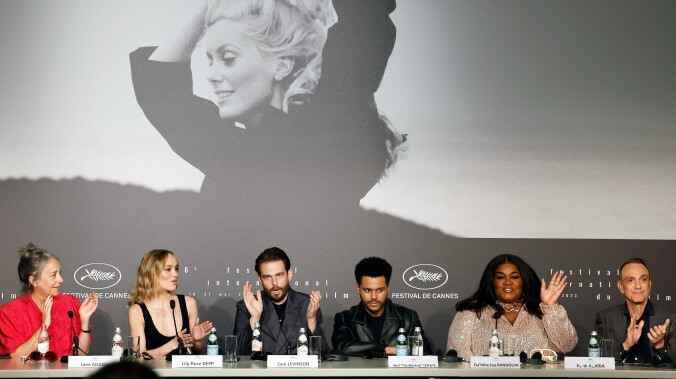Randolph says she felt “comfortable and solid and cared for” on set, despite the fact that she describes the content as “50-50” improvised/written day-of vs. previously scripted, and that she frequently didn’t know if the cameras were rolling or not. She “didn’t connect with any” of the Rolling Stone report on the behind-the-scenes drama, adding that she felt the set was more sensitive due to the sometimes extreme subject matter. “I’ve worked enough in this industry, though I have a very young career, that the moment I would have felt like, ‘Hmmm, something’s wrong …’ I would have been like, ‘Get me out of here!’” She explains. “I’m grown! I’m in my 30s! I get it, rumors, blah, blah, blah. But I promise you, I would not have done this project at this stage in my life if that was the case.”
Interestingly, she specifies that the “second iteration” of the show (in other words, after initial director Amy Seimetz departed) was not toxic (“maybe one person felt that in another iteration of it”). “I can’t speak for other people, but the way we shot it, we were all there just about every day. In this community-like ensemble shooting, I don’t think I had any days off, really. Maybe two or three, collectively,” she says, not making a great case for the non-toxic allegations but nevertheless forging on, “So I think I have a pretty good gauge of the tone and the atmosphere. Part two was done because they really wanted something good, and didn’t want to just get it done. I mean, we filmed it in the man’s house! I’d never do that!”
Like Levinson, Randolph sees the Rolling Stone controversy as good press, praising the showrunner for always including a message in his work. For The Idol, “Those who have an aptitude and intellect and awareness and an emotional intelligence, to see it and see it critically” will understand the message. “I don’t want to see or be a part of dumbed-down content,” she declares. “This one will challenge you, but that’s good.”


 Keep scrolling for more great stories from The A.V. Club.
Keep scrolling for more great stories from The A.V. Club.